The International Confucianism Forum 2024, jointly hosted by Renmin University of China (RUC) and Chey Institute for Advanced Studies of South Korea, was held at RUC in Beijing on Nov.30th.
Under the theme “Confucianism and the World,” the forum brought together over 200 scholars from China, South Korea, Japan, the United Kingdom, France, Germany, Australia, and other countries to explore Confucianism’s enduring relevance in addressing global challenges.
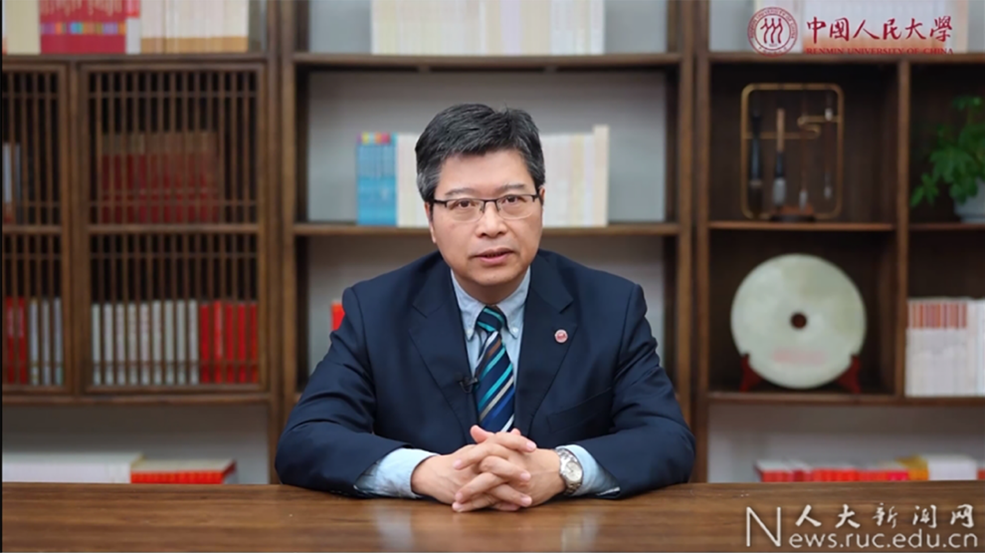
In his video address, Lin Shangli, President of RUC, emphasized the universal significance of Confucian values, such as benevolence and propriety, which transcend borders and eras. He highlighted their importance in resolving crises, fostering understanding, and building a shared future for humanity. Lin reaffirmed RUC’s commitment to advancing Confucian studies, particularly through its pioneering Confucius Research Institute, and called for scholars to illuminate pathways for human civilization with the wisdom of Confucianism.

Park In-kook, President of the Chey Institute for Advanced Studies, remarked that Confucian humanistic values could guide technological innovation in the era of artificial intelligence, ensuring ethical progress. He noted the principle of “harmony with diversity” as particularly resonant with today’s global vision and pledged continued efforts to promote peace and development through Confucian insights.
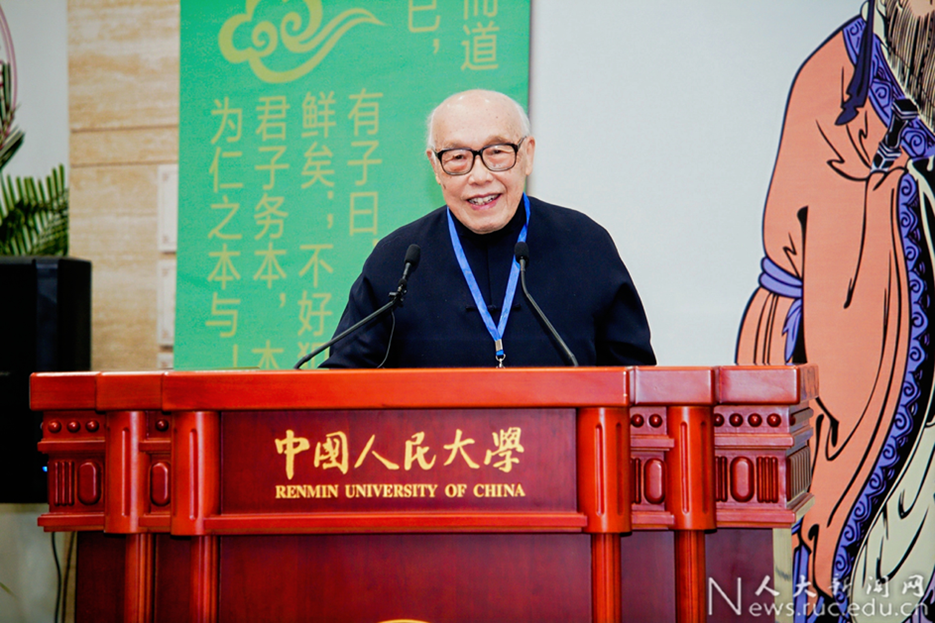
Zhang Liwen, Honorary Dean of RUC’s Confucius Research Institute, reflected on the long-standing collaboration between RUC and South Korea’s academic community, dating back to the 11th International Conference on Toegye in 1989. He expressed gratitude to the Chey Institute for Advanced Studies and participating scholars, hoping the forum would open new avenues for cooperation and dialogue.
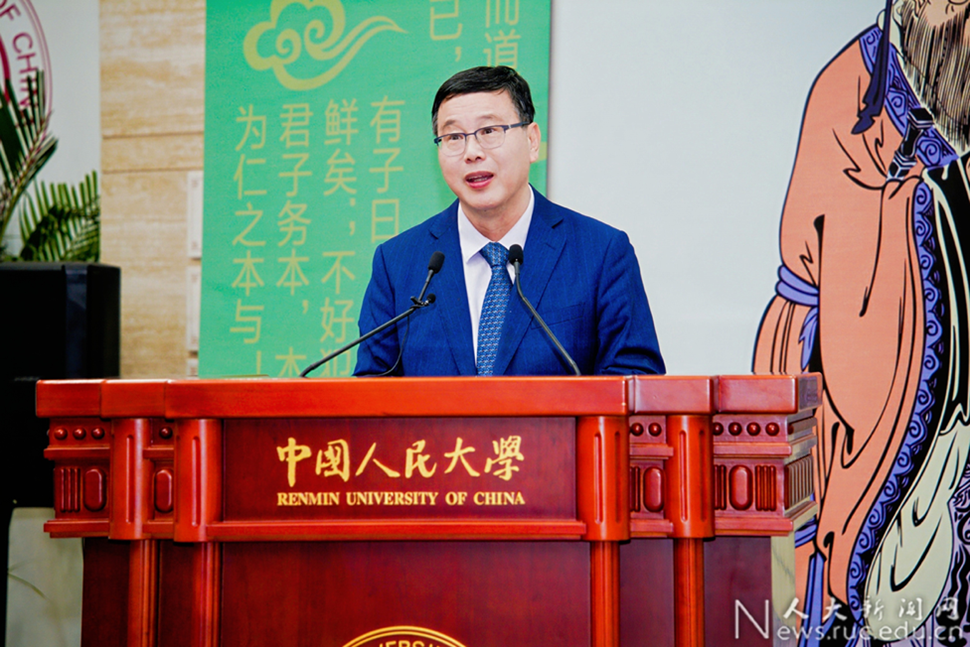
Feng Jun, Former Deputy Director of the Party History Research Office of the CPC Central Committee, emphasized the importance of advancing the study of Chinese philosophy at RUC. He expressed hope that the university’s philosophy faculty would continue on the right path, contributing to the development of philosophical disciplines and the flourishing of Confucianism.
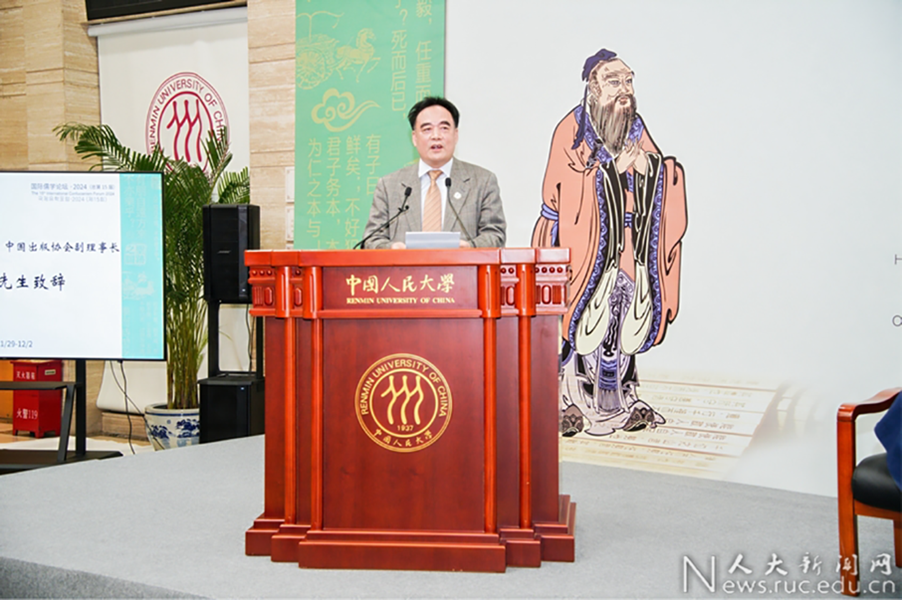
Lu Cairong, former Deputy Director of the China Foreign Languages Publishing Administration and Vice Chairman of the China Publishing Association, highlighted the intensifying global challenges in international relations, economic development, and regional security. He underscored the relevance of Confucian concepts such as benevolence and harmony, which provide valuable frameworks for addressing contemporary issues and fostering peace and development.
Zang Fengyu, Dean of RUC’s School of Philosophy, released the report Constructing Cultural Subjectivity and Civilizational Exchange. The forum then featured keynote speeches from prominent scholars on various topics.
The forum organized six parallel sessions, addressing themes such as “Harmony Studies in Civilizational Exchange and Development,” “Compilation and Research of International Confucian Canon,” “The Global Dissemination and Influence of Confucian Texts,” “New Progress in East Asian Confucianism,” “Confucianism and Civilizational Dialogue,” and “Confucianism and the Future of Human Civilization”.
These discussions brought together experts from diverse disciplines to analyze Confucianism’s role in fostering cross-cultural understanding and its potential to address contemporary global issues.

Established in 2004, the International Confucianism Forum has become a hallmark event in Confucian studies. Over its 15 editions, it has significantly influenced domestic and international academic and cultural discourse. The 2024 forum featured nearly 180 academic papers covering the history of Confucian thought, its global dissemination, and its integration with Marxism.
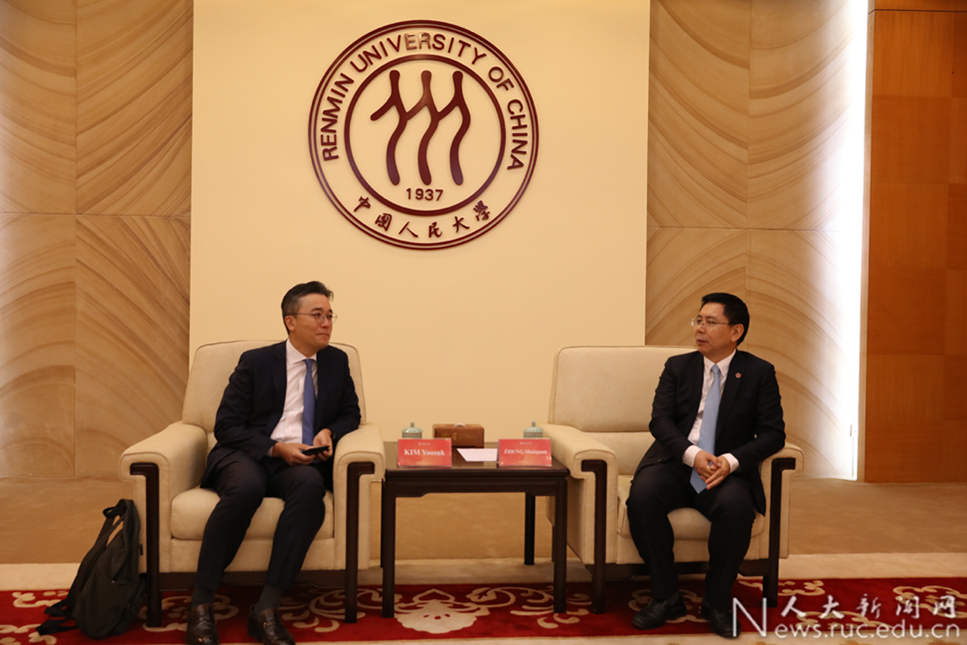
Before the opening ceremony, Zheng Shuiquan, Vice President of RUC, met with Park In-kook and his delegation, expressing gratitude for the Chey Institute for Advanced Studies’ support. Zheng highlighted the importance of deepening collaboration in Confucian studies to advance civilizational exchange and mutual understanding.


